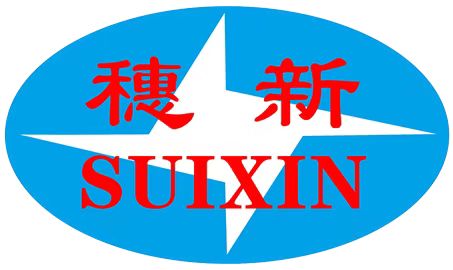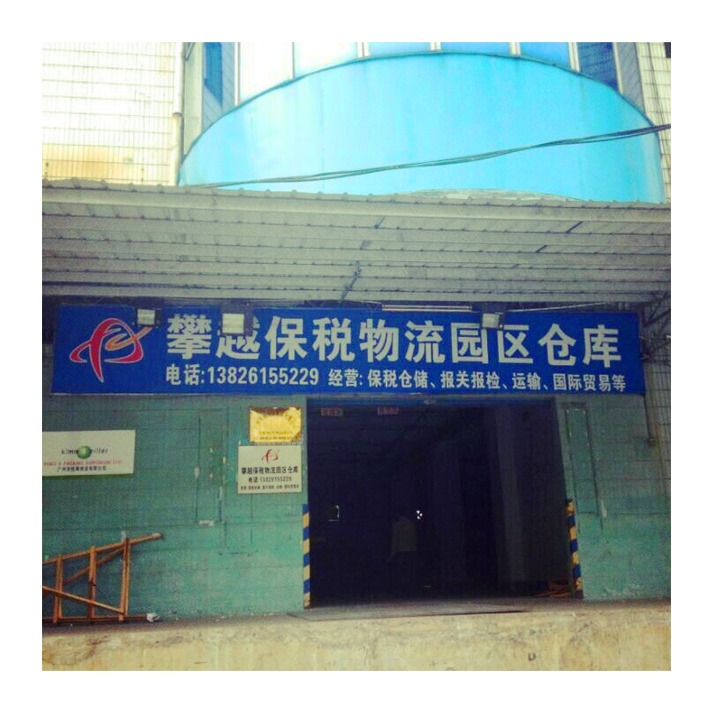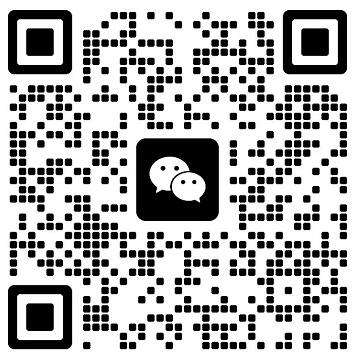Introduction to Guangzhou Bonded Zone Warehouse of Guangzhou Suixin Logistics Co., Ltd.
The bonded logistics park warehouse of Guangzhou Suixin Logistics Co., Ltd. is a specially approved warehouse by the customs for storing bonded goods and other goods with incomplete customs clearance procedures.
- Imported goods for processing trade
- Transit goods
- Fuel, materials, and maintenance parts for international shipping vessels and aircraft
- Consigned spare parts imported for repairing foreign products
- Temporary storage goods of foreign merchants
- General trade goods with incomplete customs clearance procedures
- Other goods with incomplete customs clearance procedures approved by the customs
The following content is quoted from Customs General Administration Decree No. 105:
- Article 21: When bonded storage goods are stored in the warehouse, the consignor/consignee or their agent shall submit relevant documents to the customs to complete the customs declaration and warehousing procedures. The customs shall review the type, quantity, and amount of the declared warehoused goods in accordance with the approved scope of goods and product categories allowed to be stored in the bonded warehouse, and record and register the warehoused goods.
If the entry port of the warehoused goods is not the competent customs of the bonded warehouse, the relevant procedures shall be completed at the port customs in accordance with the customs transit regulations or with the approval of the customs. - Article 22: Bonded storage goods may undergo simple processing such as packaging, classification, marking, splitting, and assembly, but no substantive processing is allowed.
Without the approval of the customs, bonded storage goods shall not be sold, transferred, mortgaged, pledged, detained, used for other purposes, or disposed of in any other way. - Article 23: The following bonded storage goods shall be exempted from customs duties and import-related taxes in accordance with the law when leaving the warehouse:
- Spare parts used for free maintenance of relevant foreign products within the warranty period and in line with the provisions on non-compensatory goods.
Note: Non-compensatory goods refer to similar goods that are free of charge compensated or replaced by foreign carriers, consignors, or insurance companies due to damage, shortage, or poor quality of imported goods after they have been released upon payment of taxes. Such goods may be exempted from taxes. However, if the original imported goods with damage or quality issues are not returned overseas, the imported non-compensatory goods shall be taxed in accordance with the regulations. According to the original customs provisions, for importing and exporting non-compensatory goods, the customs shall require an inspection certificate issued by a commodity inspection agency, certifying the damage, shortage, poor quality, or non-conforming specifications of the original imported/exported goods. The required documents include: (1) Customs declaration form of the original imported/exported goods; (2) For import: Export declaration form for the original imported goods returned overseas or certificate of abandonment of the original imported goods handled by the customs; For export: Import declaration form for the original exported goods returned to China; (3) Tax payment certificate or Tax Exemption/Conditional Tax Reduction Certificate of the original imported/exported goods; (4) Claim agreement signed by both the buyer and the seller. - Fuel and materials for international shipping vessels and aircraft
- Other goods exempted from taxes as stipulated by the state
- Spare parts used for free maintenance of relevant foreign products within the warranty period and in line with the provisions on non-compensatory goods.
- Article 24: The storage period of bonded storage goods is 1 year. If there are justifiable reasons, an extension may be granted with the approval of the customs; except for special circumstances, the extension shall not exceed 1 year.
- Article 25: The following bonded storage goods may be allowed to leave the warehouse with the approval of the customs, and the customs shall manage and inspect/release them in accordance with the corresponding provisions:
- Goods to be transported overseas
- Goods to be transported to domestic bonded zones, export processing zones, or transferred to other bonded warehouses for continued bonded supervision
- Goods converted to imported goods for processing trade
- Goods transferred for domestic market sales
- Other circumstances specified by the customs
- Article 26: When bonded storage goods leave the warehouse and are transported to other domestic locations, the consignor/consignee or their agent shall fill in an import declaration form, and declare to the customs with attached documents such as warehouse outbound documents. The bonded warehouse shall complete the warehouse outbound procedures with the customs and ship the goods upon presentation of the customs-signed and sealed customs declaration form.
For bonded storage goods picked up from an off-site location to leave the warehouse, customs declaration may be completed at the competent customs of the bonded warehouse or transit procedures may be handled in accordance with the customs regulations.
For bonded storage goods leaving the warehouse in small batches and frequent shipments, centralized customs declaration procedures may be handled with the approval of the customs. - Article 27: When bonded storage goods leave the warehouse and are re-transported overseas, the consignor or their agent shall fill in an export declaration form, and declare to the customs with attached documents such as warehouse outbound documents. The bonded warehouse shall complete the warehouse outbound procedures with the customs and ship the goods upon presentation of the customs-signed and sealed customs declaration form.
If the exit port of the outbound goods is not the competent customs of the bonded warehouse, the relevant procedures may be completed at the port customs or transit procedures may be handled in accordance with the customs regulations, with the approval of the customs.
The most distinctive feature of a bonded warehouse compared to a general warehouse is that the bonded warehouse and all its stored goods are under customs supervision and management. No goods may be stored in or removed from the warehouse without customs approval. The operator of the bonded warehouse is responsible to both the cargo owner and the customs. What are the customs supervision requirements? According to China's current customs laws and regulations:
- 1. The bonded warehouse shall assign special personnel to be responsible for the stored goods, and shall submit a list of the receipt, delivery, and inventory of the goods stored in the previous month to the local customs for verification within the first 5 days of each month.
- 2. No processing may be conducted on the goods stored in the bonded warehouse. If packaging needs to be changed or marks need to be added, such operations must be carried out under customs supervision.
- 3. When deemed necessary by the customs, it may jointly seal the warehouse together with the manager of the bonded warehouse (i.e., implement a joint lock system). The customs may send personnel to enter the warehouse at any time to inspect the storage of goods and relevant account books, and if necessary, assign personnel to be stationed in the warehouse for supervision.
- 4. When bonded goods enter the country at the customs location where the bonded warehouse is situated, the cargo owner or their agent (if the cargo owner entrusts the bonded warehouse to handle the procedures, it shall be the manager of the bonded warehouse) shall fill in three copies of the import customs declaration form, affix the "Bonded Warehouse Goods" seal, indicate that the goods are to be stored in the bonded warehouse, and declare to the customs. After the customs inspects and releases the goods, one copy shall be retained by the customs, and two copies shall be submitted to the bonded warehouse along with the goods. The manager of the bonded warehouse shall sign for receipt on the above customs declaration forms after the goods are stored in the warehouse; one copy shall be retained by the bonded warehouse as the main certificate for warehousing, and one copy shall be returned to the customs for filing.
- 5. If the cargo owner imports goods at a port other than the location of the bonded warehouse, they shall handle the transit procedures in accordance with the customs provisions on transit goods. After the goods arrive, the warehousing procedures shall be completed in accordance with the above provisions.
- 6. When bonded goods are re-transported overseas from the warehouse, the cargo owner or their agent shall fill in three copies of the export customs declaration form, declare to the local customs with the customs-signed import customs declaration form, and handle the re-export procedures. After the customs verifies that the declaration is consistent with the actual goods, it shall sign and seal the form; one copy shall be retained, one copy shall be returned, and one copy shall be submitted to the exit port customs along with the goods for release.
- 7. If bonded goods stored in the bonded warehouse are to be transferred for domestic market sales, the cargo owner or their agent must declare to the customs in advance, submit the import license, import customs declaration form, and other documents required by the customs, and pay customs duties, value-added tax (VAT), or industrial and commercial consolidated tax. After that, the customs shall approve and sign for release. The bonded warehouse shall deliver the relevant goods upon presentation of the customs-approved documents and cancel the original import customs declaration form.
- 8. Bonded fuel and spare parts for Chinese and foreign international shipping vessels, as well as bonded spare parts for tax-free maintenance of relevant foreign products within the bonded period, shall be exempted from customs duties, VAT, or industrial and commercial consolidated tax by the customs.
- 9. For goods picked up from the bonded warehouse for materials processing or processing with imported materials, the cargo owner shall complete the record-filing and registration procedures with the customs in advance with the approval documents, contracts, and other relevant documents, and fill in three copies of the special customs declaration form for materials processing/processing with imported materials and Bonded Warehouse Material Collection Approval Form; one copy shall be retained by the approving customs, one copy shall be retained by the material collector, and one copy shall be submitted to the cargo owner after being signed and sealed by the customs. The warehouse manager shall deliver the relevant goods upon presentation of the customs-signed material collection approval form and handle the verification procedures with the customs accordingly.
- 10. The customs shall manage the imported goods picked up for materials processing or processing with imported materials in accordance with the provisions on such processing modes, and determine whether to exempt or collect taxes based on the actual processing and export situation.
- 11. The storage period of goods stored in the bonded warehouse is 1 year. If there are special circumstances, an extension may be applied to the customs, but the maximum extension period shall not exceed 1 year. If the bonded goods are neither re-transported overseas nor converted to imported goods upon the expiration of the storage period, the customs shall sell the goods. The proceeds from the sale shall be handled in accordance with the provisions of Article 21 of the Customs Law of the People's Republic of China, i.e., after deducting transportation, loading/unloading, storage, and tax expenses from the proceeds, if there is any surplus, it shall be returned to the consignee within one year from the date of the sale of the goods upon application; if no application is made within the time limit, the surplus shall be turned over to the state treasury.
- 12. If the bonded goods stored in the bonded warehouse are short in quantity during the storage period, except for force majeure reasons, the manager of the bonded warehouse shall be liable for paying taxes on the shortfall, and the customs shall handle the matter in accordance with relevant provisions. If the manager of the bonded warehouse violates the above customs provisions, they shall be handled in accordance with the relevant provisions of the Customs Law of the People's Republic of China.
In view of the special nature of bonded warehouses, the customs, on behalf of the state, supervises and manages bonded warehouses and the bonded goods stored therein, and performs administrative management functions; the operator of the bonded warehouse is specifically responsible for the service work of managing the bonded goods. It can be said that the customs and the operator jointly manage the bonded warehouse. The operator shall rely on the customs to operate the bonded warehouse well, so full cooperation is essential. The operator of the bonded warehouse shall strictly implement the customs laws and regulations, submit the statements required by the customs in a timely manner, and ensure that the account books to be inspected by the customs are complete and error-free. Any problems shall be reported to the customs in a timely manner for handling to facilitate customs supervision. Under this premise, the customs shall strive to simplify procedures and provide convenience to jointly operate the bonded warehouse well, so as to give full play to the advantages of bonded warehouses and serve the development of foreign economic and trade.
- The enterprise first pre-enters the entry/exit customs declaration form.
- The enterprise fills in the Bonded Warehouse Entry/Exit Approval Form and submits it to the competent customs together with relevant documents such as the Bonded Warehouse Entry/Exit Approval Slip to apply for the entry/exit approval procedures.
- After receiving the enterprise's application, the competent customs reviews the completeness, authenticity, and validity of the relevant documents submitted by the enterprise.
- After approval, the competent customs shall note the customs opinions on the Bonded Warehouse Entry/Exit Approval Slip and issue it to the enterprise.
- The enterprise handles the import/export customs clearance procedures upon presentation of the Bonded Warehouse Entry/Exit Approval Slip issued by the customs.
- After the enterprise completes the customs clearance procedures, the customs inspection personnel inspect the bonded goods, and the bonded goods are actually stored in or removed from the warehouse.
- One copy of the Entry/Exit Approval Form
- Bonded Warehouse Entry/Exit Approval Slip
- One hand-filled Import Customs Declaration Form (fill in the export customs declaration form when outbound goods are returned or in transit trade)
- Five printed copies of the Import Customs Declaration Form (fill in the export customs declaration form when outbound goods are returned or in transit trade)
- Entry/exit application form
- Contract, invoice, bill of lading, and packing list of the entry/exit goods
- One copy of the "Storage Agreement" signed between the cargo owner and the bonded warehouse (provided when storing goods in a public bonded warehouse)
- Processing Trade Registration Manual or tax exemption/conditional tax reduction certificate (provided when goods leave the warehouse)
- Agreement for changing the cargo owner (provided when goods leave the warehouse)
- Warehouse entry customs declaration form (provided when goods leave the warehouse)
Completion within 3 working days from the date of receiving complete documents.
Guangzhou Suixin Logistics Co., Ltd. provides professional bonded warehouse services with the following supports for clients:
- Guidance on goods storage scope confirmation to ensure compliance with customs regulations
- Assistance in preparing documents for entry/exit approval to shorten the customs review cycle
- Coordination with customs for goods inspection and supervision to ensure smooth entry/exit of goods
- Real-time inventory tracking and regular report submission to keep clients informed of goods status
- Customized solutions for simple processing (packaging, marking) of bonded goods under customs supervision
With our in-depth understanding of bonded warehouse management regulations and rich operational experience, we help clients optimize the storage and circulation of bonded goods, reduce capital occupation, and improve supply chain efficiency.



 One-to-One Service
One-to-One Service Fast Turnaround Cycle
Fast Turnaround Cycle Two Decades of Import & Export Experience
Two Decades of Import & Export Experience Numerous Successful Cases
Numerous Successful Cases
 Online Consultation
Online Consultation